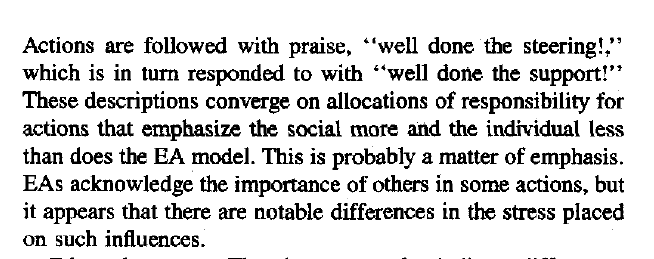Scientists believed that humans evolved to have unrealistically optimistic beliefs about much we influence the world around us. But now research is revealing how culture shapes beliefs about action, agency and intention. A thread

Psychologists report many situations where we behave as though our actions influence uncontrollable events. For example, James Henslin found that when American cab drivers play craps they throw the dice harder when they want a higher number (though this can't affect the outcome)
Ellen Langer catalogued many of these 'illusions of control'. Such illusions became influential in studies of social psychology - where exaggerated feelings of control were linked to healthy self-esteem and self-image. https://doi.org/10.1037/0022-3514.32.2.311
A tantalising possibility was that these overly optimistic beliefs were wired into us by evolution. For example, scientists used computational models to show that animals w/ unrealistic beliefs abt their capabilities could be favoured by natural selection. https://www.nature.com/articles/nature10384
However, cognitive science has a problem. Lots of experiments only study wealthy, Western, industrialised participants - and findings from these groups are extrapolated to capture all of humanity (see this recent @TrendsCognSci piece for a discussion ) https://www.cell.com/trends/cognitive-sciences/fulltext/S1364-6613(20)30131-5
) https://www.cell.com/trends/cognitive-sciences/fulltext/S1364-6613(20)30131-5
 ) https://www.cell.com/trends/cognitive-sciences/fulltext/S1364-6613(20)30131-5
) https://www.cell.com/trends/cognitive-sciences/fulltext/S1364-6613(20)30131-5
For this reason, crosscultural studies (including collaborations with anthropologist) are a key string to the cognitive scientist's bow https://twitter.com/iamscicomm/status/1290287026676232195?s=20
Such studies reveal striking variation in beliefs about action & intention. For example, Angeline Lillard described how in Samoan culture social relationships are thought of as the primary driver of changes in the world, not individual intentions https://doi.org/10.1037/0033-2909.123.1.3
There is also cultural variation in beliefs about intentional action & responsibility. For example, in Mopan Mayan culture 'intentions' & 'control' are irrelevant: children are praised or blamed for the outcomes of their actions, not their intentions https://www.researchgate.net/publication/313072174_The_thought_that_counts_Interactional_consequences_of_variation_in_cultural_theories_of_meaning
The existence of such variation is important for cognitive scientists. If there are cultures where beliefs about one's own causal powers are not exaggerated (or even not important), we may need to rethink whether such 'illusions' are really a hardwired feature of the human mind.
Such findings should prompt us to think hard about the findings from Western psychology samples. Perhaps Europeans and Americans are enculturated to believe in a controllable world, and it is this - not natural selection - that forges these illusions?

 Read on Twitter
Read on Twitter



